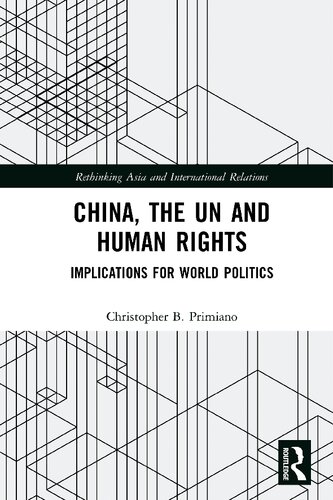

Most ebook files are in PDF format, so you can easily read them using various software such as Foxit Reader or directly on the Google Chrome browser.
Some ebook files are released by publishers in other formats such as .awz, .mobi, .epub, .fb2, etc. You may need to install specific software to read these formats on mobile/PC, such as Calibre.
Please read the tutorial at this link. https://ebooknice.com/page/post?id=faq
We offer FREE conversion to the popular formats you request; however, this may take some time. Therefore, right after payment, please email us, and we will try to provide the service as quickly as possible.
For some exceptional file formats or broken links (if any), please refrain from opening any disputes. Instead, email us first, and we will try to assist within a maximum of 6 hours.
EbookNice Team

Status:
Available4.7
35 reviewsAddressing the problem of reconciling China’s voting record in the UN on human rights and repressive policy at home, this book argues that domestic factors determine the way the Chinese government acts on wider human rights issues.
China has a very active voting record in the United Nations General Assembly (UNGA) on human rights resolutions and is active internationally on such rights, something at odds with its increasing repression of human rights at home. Using rational choice’s emphasis on actors acting to advance their preferences, the author argues that it is the perceived domestic threat to the rule of the Chinese Communist Party (CCP) that determines the way the Chinese government acts on the human rights issues explored in this book. The author documents the pattern of this relationship through an in-depth examination of China’s voting in the UNGA on human rights issues, and statements made by Chinese delegates in the UN on human rights issues.
This book will appeal to students of China, human rights, international relations, and international organizations, and for both state and non-state actors seeking to advance policy changes regarding China and human rights. In addition, the findings have policy implications for INGOs and states seeking to influence China’s policies.